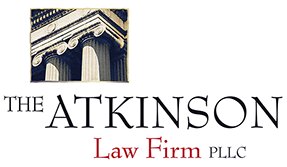Best Lawyers in North Carolina
Share your needs with us, get contacted by law firms.
Free. Takes 2 min.
Or refine your search by selecting a city:
List of the best lawyers in North Carolina, United States
United States Legal Questions answered by Lawyers
Browse our 38 legal questions in United States and read the lawyer answers, or ask your own questions for free.
- Internal investigation of sexual harassment in US
- I’m from [company removed], based in Hong Kong. One of my firm’s US employee reported to internal legal that I have sexually harassed her during my last trip to New York. An internal investigation is kicking off and I will be interviewed by firm legal. Also I have the opportunity... Read more →
-
Lawyer answer by M BILAL ADVOCATES, CORPORATE & TAX CONSULTANTS
If you are facing a sexual harassment allegation and an internal investigation in the U.S., do not submit a written statement or attend an interview without proper legal guidance. Anything you say can significantly impact your career, reputation, and potential...
Read full answer - Prenup Review and Signature
- I am looking for a Brazilian attorney to legally review a prenup with my fiancée. The prenup is only 18 pages written in both English and Portuguese. My fiancée speaks and reads English. The prenup follows USA/Virginia law. Once reviewed and signed by a lawyer with my fiancée, she can... Read more →
-
Lawyer answer by Castro Magalhães Law Offices
February 23, 2026 Proposal for Legal Services: Review of Prenuptial Agreement Dear Client, I am pleased to submit this proposal for the provision of legal services related to the review of a prenuptial agreement drafted in accordance with the laws...
Read full answer - Prenup Review and Signature
- I am looking for a Brazilian attorney to legally review a prenup with my fiancée. The prenup is only 18 pages written in both English and Portuguese. My fiancée speaks and reads English. The prenup follows USA/Virginia law. Once reviewed and signed by a lawyer with my fiancée, she can... Read more →
-
Lawyer answer by Castro Magalhães Law Offices
Castro Magalhães Sociedade Individual de Advocacia Carlos HB de Castro Magalhães OAB/RJ 080.783 | OAB/SP 501.014 Avenida Presidente Vargas, 3131, sala 604, Cidade Nova, Rio de Janeiro, RJ Avenida Paulista 1471, conjunto 511, CP 3622, Bela Vista, São Paulo, SP...
Read full answer
United States Legal Articles
Browse our 33 legal articles in United States written by expert lawyers.
- New York Climate Superfund Act Liability 2026 Guide
- This new US climate cost recovery law is retroactive and targets large historical greenhouse gas (GHG) emitters in energy, industrial, and logistics sectors as "responsible parties" for a $75 billion fund. Liability is strict: the government does not need to prove fault, negligence, or causation of specific climate harms, only... Read more →
- NY 2026 Corp Tax: Thresholds & Franchise
- For tax years beginning on or after January 1, 2026, New York businesses will only be required to make estimated tax payments if their expected New York tax (including any MTA surcharge) is at least $5,000, up from $1,000. Many small and some mid-sized New York corporations and S corporations... Read more →
- Are Non-Competes Enforceable in New York?
- Non-competes are still legal in New York and most of the United States, but courts apply strict scrutiny and often refuse to enforce broad, form agreements. Governor Hochul vetoed New York's broad non-compete ban (often referenced as S4641A / S3100A) in December 2023, so as of my last update there... Read more →
About Hiring a Lawyer in North Carolina, United States
Hiring a lawyer in North Carolina is an important process that can significantly impact the outcome of your legal issue. The typical process begins with researching potential attorneys who are licensed and in good standing with the North Carolina State Bar. Most people start by identifying lawyers who specialize in the specific area of law that corresponds to their needs, such as family law, criminal defense, or real estate. Many law firms offer initial consultations, which may be free or offered for a nominal fee. This meeting is an opportunity for you to discuss your case, ask questions about the lawyer's experience, learn about fee structures, and determine if you feel comfortable working with the attorney. Before making a decision, it’s wise to check reviews, seek recommendations, and verify that the lawyer has no disciplinary history. Once a lawyer is chosen, their services are typically formalized with a written agreement that outlines representation and fee arrangements.
Why You May Need a Lawyer
There are many situations where seeking legal assistance in North Carolina is beneficial or even necessary. Common scenarios include:
- Criminal Charges: If you are facing criminal prosecution for anything from traffic violations to felonies, a criminal defense lawyer can protect your rights.
- Family Law Matters: Divorce, child custody, child support, and adoption matters often require legal expertise to navigate complex state laws and court procedures.
- Personal Injury: Injury due to car accidents, workplace incidents, or negligence often requires legal help to receive fair compensation.
- Employment Issues: Disputes over wrongful termination, workplace discrimination, or wage issues may warrant hiring an employment lawyer.
- Real Estate Transactions: Whether buying, selling, or inheriting property, attorneys can ensure valid contracts and smooth transfers.
- Estate Planning: Wills, trusts, and guardianship documents often require legal drafting and advice.
- Civil Litigation: When disputes arise among individuals or businesses, a lawyer can represent you in negotiations or court.
These scenarios show how having a skilled legal professional can help ensure your interests are protected and your rights are enforced under North Carolina law.
Local Laws Overview
North Carolina has a unique legal landscape that is influenced by both statewide statutes and local ordinances. Some key aspects relevant to lawyers and clients in North Carolina include:
- Community Property: North Carolina is not a community property state. Instead, it uses equitable distribution principles in divorce and separation.
- Criminal Law: North Carolina identifies certain crimes differently and has distinct sentencing guidelines. For example, the state uses the Structured Sentencing Act for criminal penalties.
- Employment Law: North Carolina follows the employment-at-will doctrine. This means employers can generally terminate employment for any nondiscriminatory reason unless otherwise agreed in contract.
- Statute of Limitations: For civil cases, North Carolina law provides strict deadlines. For instance, personal injury lawsuits generally have a three-year statute of limitations.
- Gun Laws: North Carolina has specific requirements for handgun permits and concealed carry.
- Real Estate: The state requires attorneys to be involved in real estate closings.
- Business Formation: North Carolina has its own regulations for forming and running businesses, including registration and reporting procedures with the North Carolina Secretary of State.
Understanding these local laws is essential for legal professionals and clients. Legal advice from a North Carolina attorney ensures compliance with current legal standards and regulations.
Frequently Asked Questions
How do I find a qualified lawyer in North Carolina?
You can search the North Carolina State Bar’s Lawyer Referral Service, ask for recommendations from trusted sources, or use county bar associations. Always verify the attorney's credentials and standing.
What types of fees do lawyers charge?
Lawyers in North Carolina may use hourly fees, flat fees, contingency fees, or retainers, depending on the type of case. Be sure to discuss all potential costs during your initial consultation.
Can I get a free consultation?
Many North Carolina lawyers offer an initial consultation at no charge, especially in personal injury and criminal cases. However, some may charge a fee, so it’s wise to ask in advance.
How can I confirm a lawyer is licensed in North Carolina?
You can check a lawyer’s license and any disciplinary history through the
Lawzana helps you find the best lawyers and law firms in North Carolina through a curated and pre-screened list of qualified legal professionals. Our platform offers rankings and detailed profiles of attorneys and law firms, allowing you to compare based on practice areas, experience, and client feedback.
Each profile includes a description of the firm's areas of practice, client reviews, team members and partners, year of establishment, spoken languages, office locations, contact information, social media presence, and any published articles or resources. Most firms on our platform speak English and are experienced in both local and international legal matters.
Get a quote from top-rated law firms in North Carolina, United States — quickly, securely, and without unnecessary hassle.
Disclaimer:
The information provided on this page is for general informational purposes only and does not constitute legal advice. While we strive to ensure the accuracy and relevance of the content, legal information may change over time, and interpretations of the law can vary. You should always consult with a qualified legal professional for advice specific to your situation.
We disclaim all liability for actions taken or not taken based on the content of this page. If you believe any information is incorrect or outdated, please contact us, and we will review and update it where appropriate.
Refine your search by selecting a practice area.
Accidents & Injuries
Banking & Finance
Bankruptcy & Debt
Business
Civil & Human Rights
Consumer Rights
Corporate & Commercial
Criminal Defense
Employment & Labor
Energy, Environment & ESG
Family
Immigration
Insurance
Intellectual Property
Lawsuits & Disputes
Media, Technology and Telecoms
Notary Services
Private Client
Real Estate
Browse law firms by city in North Carolina
Refine your search by selecting a city.


































